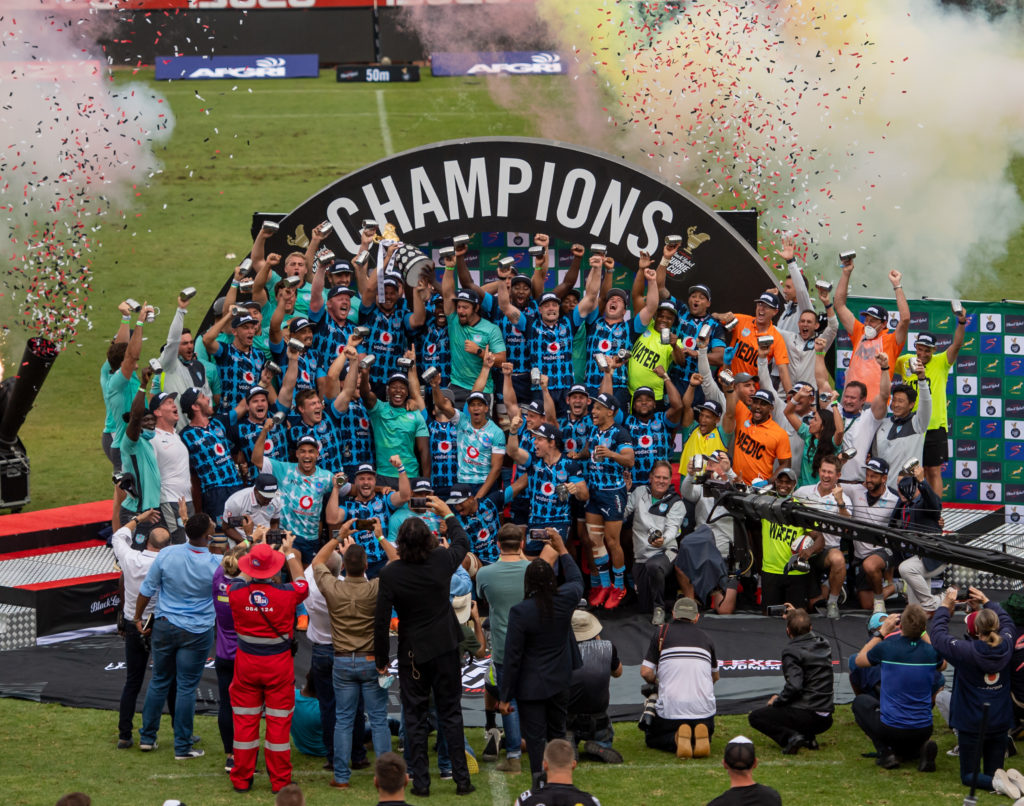ANDRE-PIERRE CRONJE underscores four lessons from this year’s Currie Cup.
WATCH: The moment Bulls scored winning try
The kids are all right
One striking feature of this year’s Currie Cup has been the emergence of some seriously talented youngsters. Names like Stravino Jacobs, Tiaan Swanepoel, Zak Burger, Jaden Hendrikse and Elrigh Louw have appeared (relatively speaking) out of the blue. Each has made a significant impact on South African rugby’s biggest stage.
Other youngsters such as Ruan Nortje, Wandisile Simelane, Curwin Bosch, Vincent Tshituka and Juarno Augustus may have been more established names coming into the tournament, but have really come of age during it.
Although it is not unusual for talent to be unearthed during the Currie Cup, this year feels particularly special given the involvement of all the senior Springboks. If these up-and-coming players can leave such an impression in a tournament brimming with Springboks, it speaks volumes about their talent.
Of all the players mentioned above (and there could have been many more) not a single one is over the age of 25 and most are younger than 23. South Africa’s future indeed looks bright.
It starts from the top
When the Vodacom Bulls and Sharks contested the Currie Cup final it was fitting reward for the two best administered sides in South Africa. It also came as little surprise. In the professional era, sport is a business and, like any business, the better the quality of those in charge the more likely it is to succeed.
Much credit must go the way of the two CEOs – Eduard Coetzee of the Sharks and Edgar Rathbone of the Bulls. Their strategic appointments of key coaching and playing personnel have reaped immediate rewards for their respective teams.
Both CEOs have courted various commercial entities and secured financial stability during a very tricky period. The Sharks’ deal with MVM Holdings is the first of its kind in South African rugby and will lay the base for long-term commercial and playing success.
Rathbone, Coetzee and all those involved in the directorship of the Bulls and Sharks have shown the blueprint for success. South Africa’s other franchises ought to take note.
There is a way to go
There is much to celebrate about this year’s Currie Cup. The immense work put in by players, administrators and sponsors to ensure it could even go ahead given the trying circumstances is commendable.
If we are being honest with ourselves, though, the overall quality of the tournament was distinctly average. Covid-19 disruptions and the unfamiliarity of playing in the summer all played a part, of course, but there’s more introspection needed.
The quality of the refereeing in the competition should be of serious concern. Basic errors by referees and TMOs were the norm in most matches and inconsistent application of the law reigned supreme. This is an area that needs to be addressed with some urgency.
On the playing front, the skills levels of our players left a lot to be desired. Low ball-in-play times, little ambition on attack, poor ability to recycle possession through multiple phases – all plagued the competition. Rassie Erasmus may feel a little concerned about the preparedness (or lack thereof) of our players leading into a Lions series.
New Zealand’s rugby should always be what South Africa compares itself to and at this stage we have a way to go.
Rugby needs fans
The absence of fans from the Currie Cup, though necessary, had a profoundly deflating impact on the tournament. In a game like rugby that is almost gladiatorial in nature, it’s difficult to overstate how much players rely on crowds of their supporters.
The empty stands seemed to have a sapping effect on players when usually they are a source of energy and motivation. Multiple players, including Springbok captain Siya Kolisi, have gone on record stating they do not enjoy playing without fans and it’s easy to see why.
For viewers at home (where else?) games also have an anti-climactic feel without the buzz from the crowd. Can you imagine what the noise would have been like at Loftus when the Bulls won their first Currie Cup in over a decade – in extra time, no less? Or what it would have sounded like at Newlands in the final Currie Cup game at the Grand Old Lady?
These moments have been cruelly taken away from fans. It is hard to predict when spectators will be allowed to return to stadiums, but one thing is clear, without them rugby is far worse off.




